How accurate are you when writing medical scenes? According to Dr. Natalie Dale, most writers make a lot of mistakes when it comes to medical topics. Fortunately, she’s written a guide to help you make sure you get it right in your next book!
by Natalie Dale
I see writers making a lot of mistakes when it comes to medical situations in stories, and often they are very genre specific.
But here are the big 3.
Mistake #1 When Writing Medical Scenes: Doctors Don’t Do Everything.
I understand the goal of minimizing the number of characters in your story, but doctors don’t take blood samples, wheel patients around the hospital, or run lab tests (unless they’re a pathologist, and even then, they don’t run the routine tests).
Your character will probably spend much more time with their nurse, CNA, social worker, and even their therapists (physical therapist, occupational therapist, speech therapist, etc.) than they will with their doctors.
Plus, doctors tend to work in teams. Your hospitalized character will have a hospitalist (or surgeon if they’ve had major surgery) who takes care of most daily care, but may also have a battery of specialists – cardiologist, infectious disease, neurologist, etc. – who also care for them.
Finally, in many hospitals, the floors (aka the practitioner doing most of the daily care) are run by advanced practitioners, such as physician assistants (PAs) and Nurse Practioners (NPs).
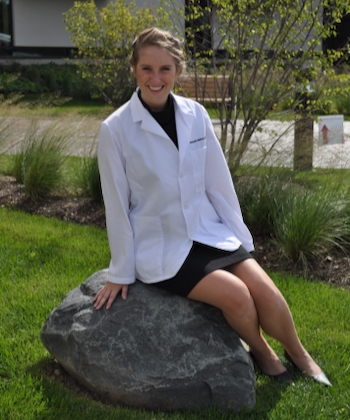
Mistake #2 When Writing Medical Scenes: Head Injuries (Traumatic Brain Injuries) Are Serious Business
Hitting a character over the head to knock them out may be convenient for your story, but in real life, you’d be giving them a concussion at best, and lifelong brain injuries at worst.
Hitting your character over the head won’t give them autobiographical amnesia (aka forgetting who they are), and won’t put them into a coma unless you’re willing to make them go through MONTHS of recovery and rehabilitation.
Mistake #3 When Writing Medical Scenes: Minimizing Very Serious Conditions
Most people will never return to full functioning after CPR. People don’t just wake up from comas. Doctors will never place a character in a therapeutic coma (the medical term for a “medically induced coma”) to heal.
Writing unrealistic recoveries for your characters is not only unbelievable, but it can also actually be harmful. I had many families who, against medical advice, insisted we perform futile CPR or keep their comatose loved one on life support because they believed in the miraculous recoveries they’d seen on TV.
Families went bankrupt and were torn apart because of these decisions.
What we write matters. People believe what they read/see on TV, so please be accurate, especially when writing about serious conditions.
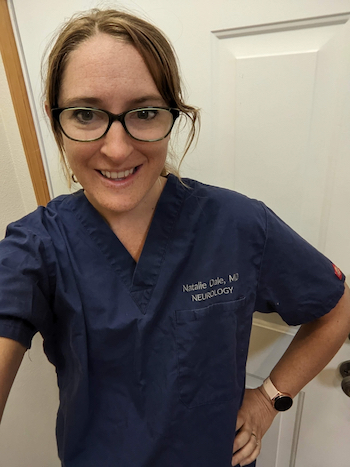
Helpful Guide for Writing Medical Scenes
Doc Talk is a very short companion guide to my Writer’s Guide to Medicine series.
It’s basically a dictionary of medical terminology and slang. I was inspired to write it because of my own journey learning to write my characters’ voice.
A character’s voice is such an important component of their story, so it’s important to get it right. But sometimes, particularly if that character is skilled in a particular niche, it can be really difficult to get all of the terminology, jargon, and slang correct.
Doc Talk is my attempt to help writers with medical characters get that lexicon correct.
Writing Medical Scenes: Medical Tropes in Different Genres
[Natalie also teaches workshops on this topic.] I definitely try to target my lectures to my audience.
For example, when I gave a lecture to Sisters in Crime, I focused on topics applicable to mystery writers, like poisons and the decomposition of bodies. For Romance Writers of America, I focused on topics like amnesia and terminal illnesses. With more general audiences, I focus common mistakes and tropes I see in medicine.
One of the cool things about romance as a genre is that readers expect to see certain tropes and aren’t necessarily turned off by them. Some medical tropes I see in romance include amnesia, terminal situations, the “country caretaker,” and comas.

How Writing Helped Me Decide to Change Careers
Leaving medicine was a really difficult decision. I’d basically worked my whole life towards becoming a doctor, so deciding to take a different path was really scary.
I was diagnosed with bipolar disorder shortly before starting residency. Unfortunately, that meant that I was very, very ill during what is considered one of the most challenging times of a young doctor’s career.
I would start a rotation, get sick and have to drop out. Then I’d spend a month or so getting better, only to go back and immediately get sick again. After a year and a half of this, I realized that the only way I was going to permanently get better was to leave medicine for good.
During this 1.5 years of rotating in and out of residency, I started writing. I started out with journaling, but I quickly transitioned to bigger projects, such as short stories and even novels. Writing gave me a sense of purpose. It gave me something productive to work on during those months I was trying to recover.
I didn’t realize it at the time, but much of my writing helped me process all of the complicated emotions surrounding my decision to leave medicine. And of course, I also found that I genuinely loved writing. So, when I finally came to the decision to put my health first and leave medicine for good, writing was the natural next direction.
Deciding to Make a Career Out of Writing Was Terrifying
Of course, deciding to make a career out of writing was terrifying. I was a biochemistry major who’d spent the majority of my adult life focused on science and medicine. I knew nothing about writing – as an art or as a business. And I had enough student loans from medical school that going back and doing an MFA was out of the question.
So, I had to learn how to write – and how to market – completely on my own. I attended critique groups, took online classes, joined professional organizations (like the WFWA), attended writer’s conferences, and took as many free webinars as I could. I tried to approach all of these with a learner’s mindset, acknowledging that I was a straight-up beginner and that I needed all the help that I could get. Five years later, I still try to approach writing – and marketing – as a learner.

Coping Techniques for Writers with Bipolar Disorder
Bipolar disorder forced my hand. I had to choose my health over my career. However, I love my career as a writer, and I wouldn’t have it any other way.
Unlike medicine, my career as a writer is flexible, allowing me to prioritize my health when I need to. It’s a true gift. Bipolar disorder is episodic – while I am much healthier than when I was first diagnosed, I still occasionally have smaller episodes. Being able to step away from my work when I am having an episode helps me to heal faster and minimizes the impact of the episode.
I have had to learn a lot of coping techniques over the last few years. These include:
Taking medications.
Bipolar disorder is a neurochemical disease that can be treated. Religiously taking my medications – even when I’m feeling healthy – helps to prevent episodes. When I’m in an episode, increasing my dose or taking medications to help alleviate the symptoms, helps me to feel better and decreases both the duration and intensity of my episodes. I’ve met a lot of people who are anti-medication. They think medications mess with their personality, or that it’s somehow cheating. But for me, medications allow me to be fully myself.
Getting sleep.
I love sleep. Sleeping helps my brain to heal when I’m sick, and helps prevent episodes. I am militant about sleep. I try to go to sleep at the same time every night and get up at the same time every morning. Having a good sleep regimen helps keep me healthy. And I always keep a notebook beside my bed, so I can jot down any cool middle-of-the-night writing ideas without having to actually get up and disturb by sleep.
Stepping away.
When I’m depressed, I often try to force myself to work through it. After all, my job is easy – I don’t deserve to take time off. But, with time and practice, I’ve learned to challenge that type of thinking. Instead of beating my head against the wall, I’ve learned that it is often better to step away. Sometimes, that might just mean going for a walk. Other times, it might mean taking an entire week away from my computer to rest and recharge. As a Type A person whose usual approach to problems is to bulldoze through them, stepping away has been an incredibly difficult skill to learn. But it’s also been an incredible boon to my mental health as a whole.
How I Fit Writing Into My Life
I am very lucky in that I have been able to make writing my full-time job. And I do treat it like a full-time job. I write from 9-5, Monday-Friday.
Having scheduled, butt-in-chair writing time is a very effective motivator for me. However, I definitely struggle with discipline sometimes, particularly if I am feeling blocked or unsure where my story should go.
If I find myself getting distracted, I try to shift away from writing to other aspects. I might watch a video on writing or marketing, try to write a couple new lines of ad copy, or look for new keywords. If none of that works, I go for a walk.
My Best Book Marketing Tactic
So far, the best book marketing tactic I’ve used has been Amazon Ads.
I took Bryan Cohen’s free Amazon Ad Challenge and watched my monthly sales go from 1-2 sales/month to 1-2 sales/day.
Email marketing is a challenge and I haven’t dove into Facebook Ads yet. Another source of marketing is teaching the workshops and classes, though it’s hard to tell how successful those have been as a pure marketing strategy.
Mostly, I just enjoy teaching the classes and connecting with other writers.
Advice for a Young Writer: Cultivate Other Passions
First, I’d tell them to read. No one can be a good writer without reading!
Second, I’d tell them to cultivate their other passions as well. Great writers don’t just love writing, they have an interesting outlook on the world. For example, I love llamas and alpacas and my newest novel (a YA Fantasy) features a sentient llama.
Third, write! Don’t spend all your time planning and worldbuilding; get that butt-in-chair time and get those awesome ideas down on paper.
* * *
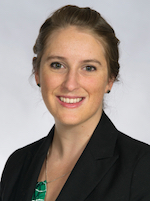 Natalie Dale, MD, is a former neurologist turned writer and medical story consultant. Her “Writer’s Guide to Medicine” series currently has two volumes published through Ranunculus Press. Volume 1: Setting & Character was released in 2021, and Volume 2: Illness & Injury recently launched in July 2022.
Natalie Dale, MD, is a former neurologist turned writer and medical story consultant. Her “Writer’s Guide to Medicine” series currently has two volumes published through Ranunculus Press. Volume 1: Setting & Character was released in 2021, and Volume 2: Illness & Injury recently launched in July 2022.
Dr. Dale lectures on writing about medicine and has been invited to speak at organizations such as Sisters in Crime, Willamette Writers, and Write on the Sound. Her essays and short stories have been published through The Bump, National Alliance on Mental Illness, Wyldblood, and Downstate Story, among others. In her spare time, Dr. Dale loves board games, hiking, and all things alpaca.
To find out more, check out her website and sign up for her newsletter. You can also follow her on Facebook, Instagram, or Twitter.
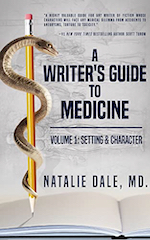 Volume 1: Setting & Character:
Volume 1: Setting & Character:
“A highly valuable guide for any writer of fiction whose characters will face any medical dilemma from accidents to aneurisms, torture to toxicity.”
~#1 New York Timesbestselling author Scott Turow
Medicine is a world unto itself; lives can be changed in an instant and decisions are truly life-or-death. But it’s also a bizarre and alien world, full of unique settings, confusing acronyms, and a confounding array of different conditions. No wonder writers love to write about medicine. No wonder they get it wrong.
In the Writer’s Guide to Medicine, Dr. Dale shows you how to accurately depict the world of medicine in your writing and points out the most common clichés and medicine-related pitfalls.
In Volume 1: Setting & Character, you’ll learn:
- How medical professionals approach an emergency
- Key sensory details for unique medical settings
- How to avoid medical clichés.
- Facts about death and dying
- Specifics about comas, consciousness, and the infamous “medically-induced coma”
- The truth about hospital food
- And more!
Available on Amazon.
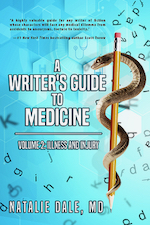 Volume 2: Illness & Injury
Volume 2: Illness & Injury
Medicine is hard. Writing about medicine doesn’t have to be.
Struggling to write your character’s chronic illness? Need to injure a character but don’t know how? Look no further! Let physician and author, Natalie Dale, MD, be your guide to writing about medicine.
In Volume 1: Setting & Character, Dr. Dale navigated writers through the complex maze of hospital settings and medical professions. Now, the doctor is back, tackling one of fiction writers’ biggest and most important questions: how to believably injure, poison, sicken, maim, mutilate, disable, or otherwise cause harm to their beloved characters.
In Volume 2: Illness & Injury, you’ll learn:
- How to believably injure characters—and the treatment they’ll need to survive.
- Which life-threatening conditions might afflict your young, otherwise healthy character.
- How to describe tough medical situations, such as suicide, miscarriage, and cancer.
- How to avoid medical clichés and harmful misrepresentations.
- And much, much more!
Volume 2: Illness & Injury is packed with straightforward, practical, and sometimes hilarious advice that will transform your writing about medicine from a research nightmare to an enjoyable adventure.
Available on Amazon.
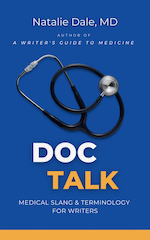 Doc Talk: Medical Slang & Terminology for Writers
Doc Talk: Medical Slang & Terminology for Writers
From the author of the Writer’s Guide to Medicine series comes Doc Talk: Medical Slang & Terminology for Writers, a reference guide to medical phrases, terminology, and slang.
Need to incorporate medical terminology into your story? Want to write the authentic voice of a doctor or nurse? Look no further. In Doc Talk, physician and author Natalie Dale, MD, provides a clear and understandable overview of the complicated lexicon of medicine and healthcare professionals.
In this handbook, you’ll learn:
- Key medical terms, phrases, and abbreviations used by doctors, nurses, and other healthcare professionals
- Names of common medical equipment
- Basic anatomy & anatomic terminology
- Slang used by medical providers
- And more!
Doc Talk: Medical Slang & Terminology is a compact, straightforward, and practical guide that will demystify the medical lexicon. Get ready to write about medicine like a pro.
Available for FREE here.

